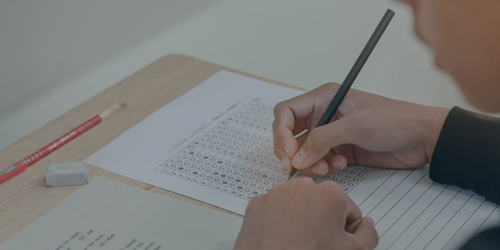Does your mind jump to only doctors and nurses when you think of healthcare services? Do you know there are other healthcare-related jobs too which fall outside the traditional healthcare professions? These are called allied healthcare services. People often get confused between allied healthcare and medicine because the term ‘allied healthcare’ is still not commonly in use. The statistics show that even less than 10% of the total medical aspirants get MBBS seat in different medical colleges across India because the competition is though and seats are limited. So, don’t worry if you did not get a seat in MBBS because there are still opportunities for you to be associated with the Health Services sector other than MBBS/BDS. Want to know how??? Read this article.
Allied healthcare includes a wide range of healthcare career options that don’t require a medical degree, even the general graduates who are seeking a career in healthcare services opt for this. Allied healthcare is affordable and efficient study options which usually take less than four years to complete. Allied health professionals are those who are not part of the medical, dental or nursing professions. These practitioners work within a multidisciplinary health team to provide specialized support for different patient needs. Doctors, nurses, and pharmacists all directly come into contact with patients. For allied health professionals, the level of patient contact can vary by job, by your workplace setup, or even by day.
Before knowing the professions which come within the area of allied health care, get a clear view of the professions which come under traditional healthcare.
Traditional healthcare-
Medical professionals are those who play key roles in diagnosing the symptoms of the illnesses with the aim of treating and curing a patient. Medical professionals often fall into the following categories-
- General medicine
- Dentistry
- Pharmacy
- Nursing
Allied healthcare-
Now, let’s take a look at some of the jobs that fall under the allied healthcare.
Cardiovascular technologists
Cardiovascular technologists are those who work with imaging equipment to examine heart-related medical conditions and prepare summaries for doctors. They may also assist with surgical procedures. One can be a cardiovascular technologist after completing a two-year certification program or bachelor’s degree.
Radiologic and MRI Technologists
Radiology technologists deal with advanced imaging technology like mammography, sonography, radiation therapy, or magnetic resonance imaging (MRI). To work as a radiologic technologist you need to have a specialization in this field for which you can opt for a certificate or an associate degree from an accredited institution. The study may include physiology, radiation protection, and anatomy. These programs are usually of 1 to 3 years of duration.
Medical Billing and Coding Specialists
The specialists support the work of hands-on medical personnel by working with patient health and medical records, insurance, billing, and coding. The professionals may work in doctors’ offices, nursing homes, hospitals and insurance companies.
Medical Laboratory Technologist
These technologists analyze samples, including blood, urine, and tissues, operating laboratory equipment and discuss test results with doctors. To become a laboratory technologist one requires a bachelor’s degree along with an associate degree or a one-year certificate.
Emergency Medical Service Professionals
Emergency medical service professionals also known as EMTs, are the ones who are the first responders in an ambulance or hospital during emergencies and natural disasters. One can complete training from a certification program within one or two years to work as an Emergency Medical Service Professionals.
Dietitians
Using the knowledge of the science of food and nutrition the Dietitians work for the improvement of patients’ health, they also work for preventing and managing chronic diseases and obesity. They work in various places like in hospitals, clinics, schools and even as self-employed.
Physical Therapists
These therapists help people recover from illness and injury. Physical therapists treat people in various conditions like back and neck injuries, sports injuries, arthritis, and neurological conditions.
The service provides for allied health care does not end here rather this is a vast area to work within. The other career options in allied healthcare services are as follows-
- Anesthesia Technology
- Neuroscience Technology
- Surgical Technology
- Blood Bank and Immunology Technology
- Urology Technology
- Physician Assistant
- Critical Care Technology
- Perfusion Technology
- Audiology & Speech Pathology
- Optometry
- Medical Transcription
Eligibility to study allied healthcare courses-
In order to take admission into Bachelor’s Degree program, a student must have qualified 10+2 in Physics, Chemistry, Biology (Botany and Zoology) and Mathematics. However, the eligibility criteria are different for different colleges and courses. Also, many specialized certificate courses, Postgraduate and Diploma courses are offered in this field.











